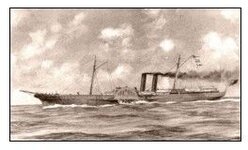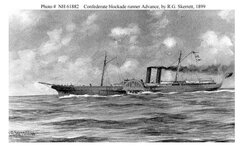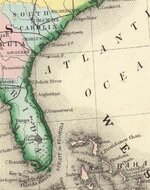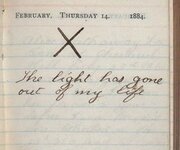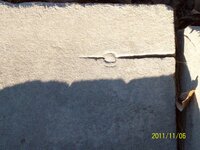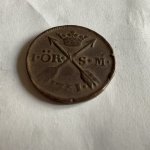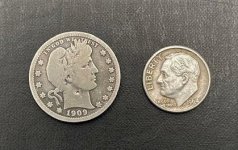- Jun 1, 2012
- 5,036
- 7,168
- Detector(s) used
- Garrett ADS-7X, Fisher Two Box M-Scope, Mother Lode Locator, Dowsing Model 20 Electroscope, White's TM808, White's TM900, Inground Scanners
- Primary Interest:
- All Treasure Hunting
Early on in the war, the South and it's leaders felt the war could not be won. The South when succeeded from the Union depended on the KGC and it's military formation for protection and funds until troops could be assembled and the government could be organized. The KGC already had vaults of treasure put away. The information I have seen when they put gold and silver away they would place them in "D" depositories. When the Civil War began all of these depositories that became Confederate Depositories became known as "CD" but some of their depositories were "OCD" and determined that to mean the Old KGC Depositories had now become "Old Confederate Depositories." But anyway the Confederacy mostly paid for everything with promissory notes. Once in a while these were not excepted and gold specie and silver in specie and bars had to be shipped to them or obtained from some of their other resources in the Bahamas, Havanna, Cuba or Liverpool Assurances from Liverpool, England or the Fraser, Trenholm Shipping Enterprise. There were hundreds of tons of gold and silver put away for a Second Civil War. As I said they even tried to ship one million in gold specie out of the United States almost two years after the end of the war. With Maximilian's gold of over seventeen million dollars and the Aztec or Montezuma's gold of millions plus the CSA Gold Depositories and the KGC Depositories after the Civil War all of this became the KGC's gold and it's efforts to fight a Second Civil War. Hopes died down after the dead of their beloved leader Robert E. Lee and then when World War I broke out the Knight's all became soldier's and fought for the sovereignty of the United States. After World War I the KGC closed it's books for fifty years. What happened to all of their Gold Depositories is a huge question. Did the South use these funds during the Reconstruction and the modernization of the infrastructure and railroads? Or are they still intact because most of the Knight's were killed in World War I and the locations of the treasures or depositories was lost. We won't know until we open up these OD of the KGC.



